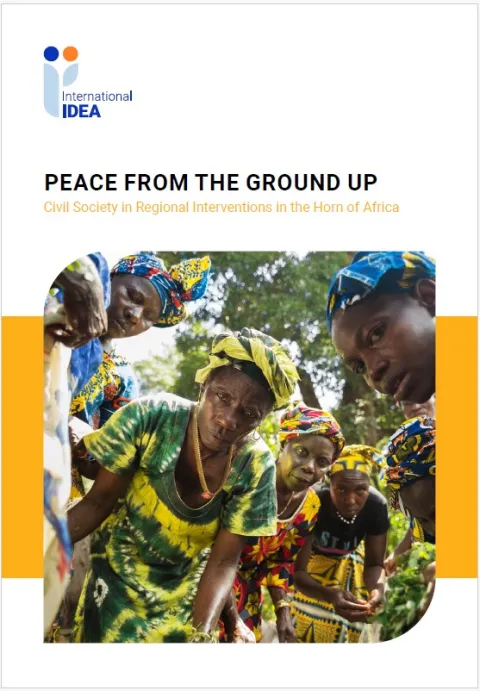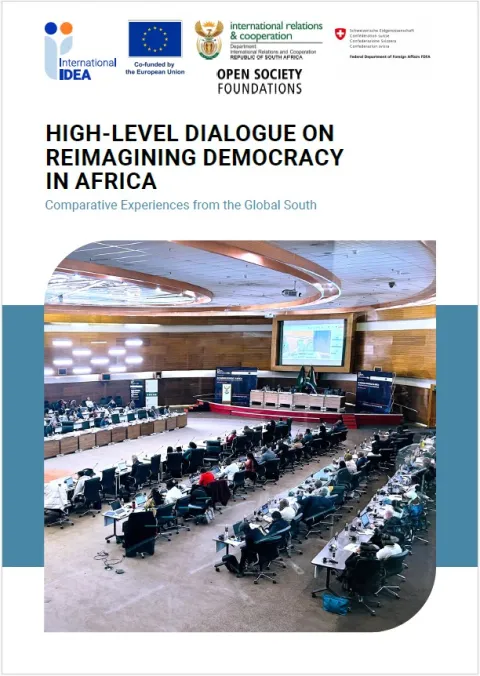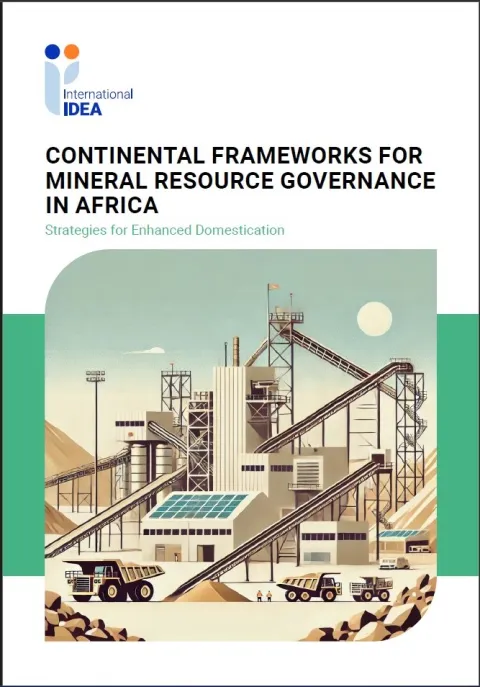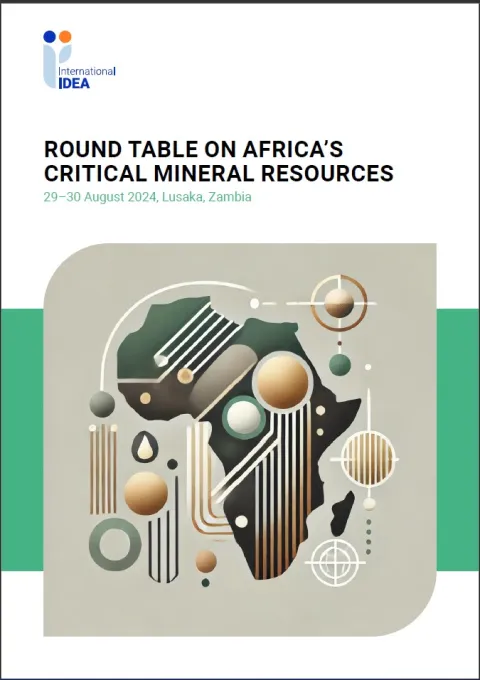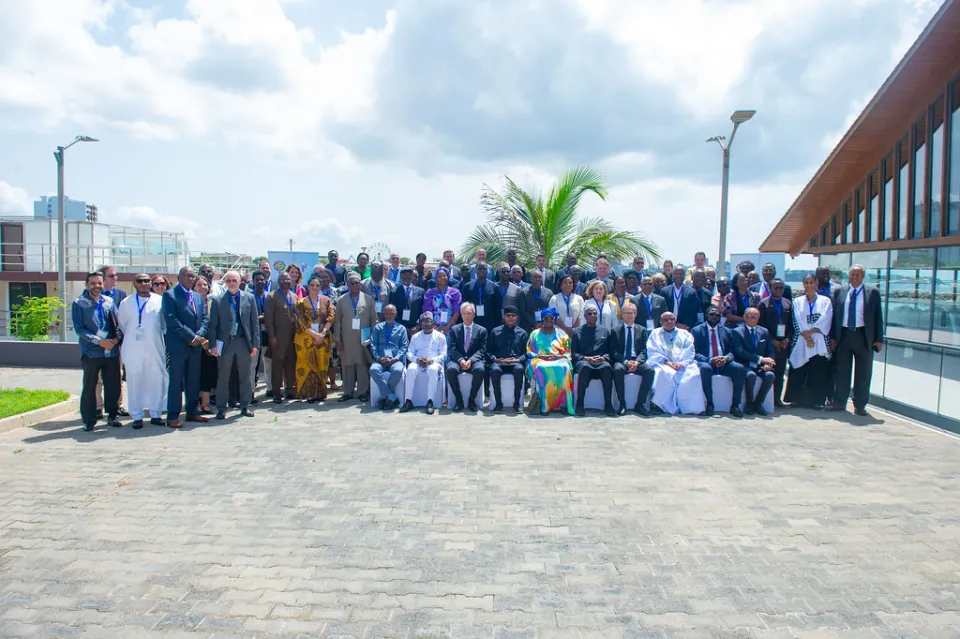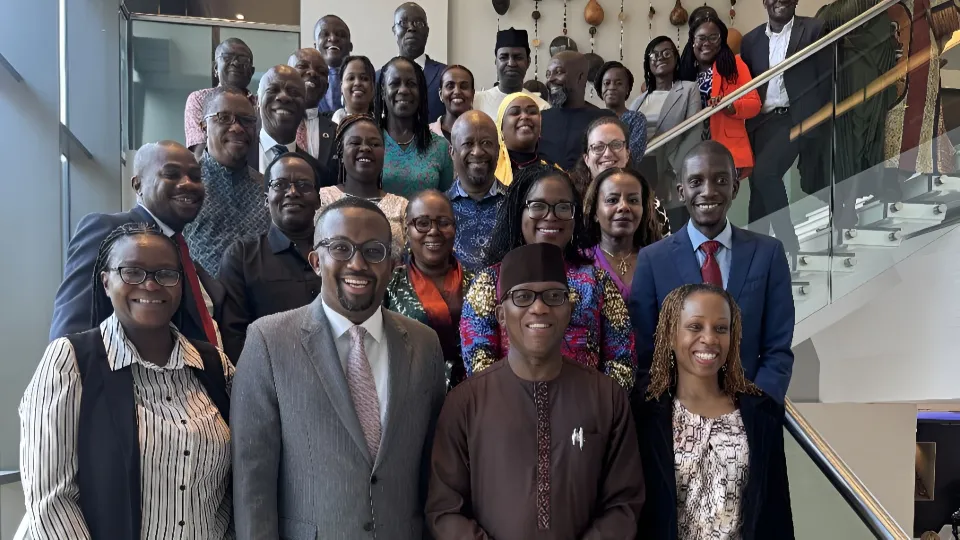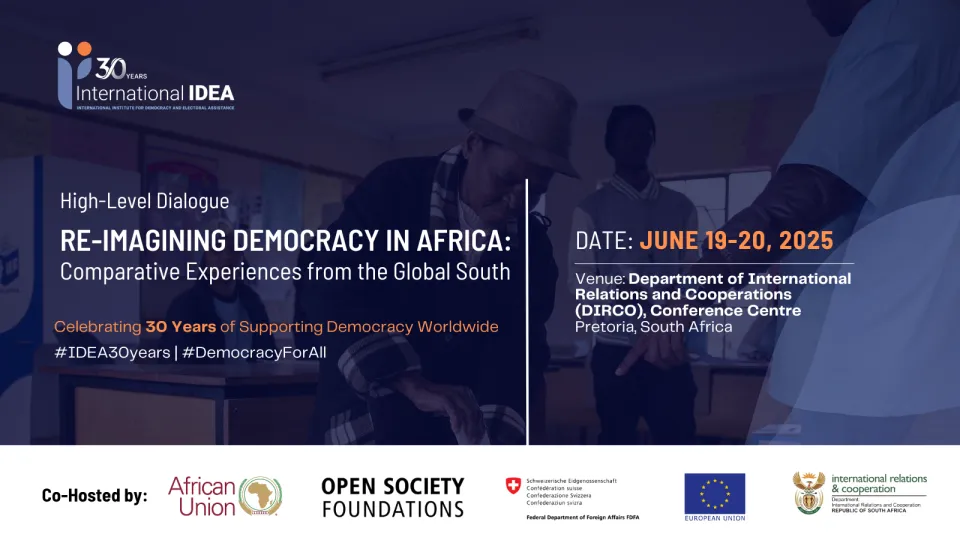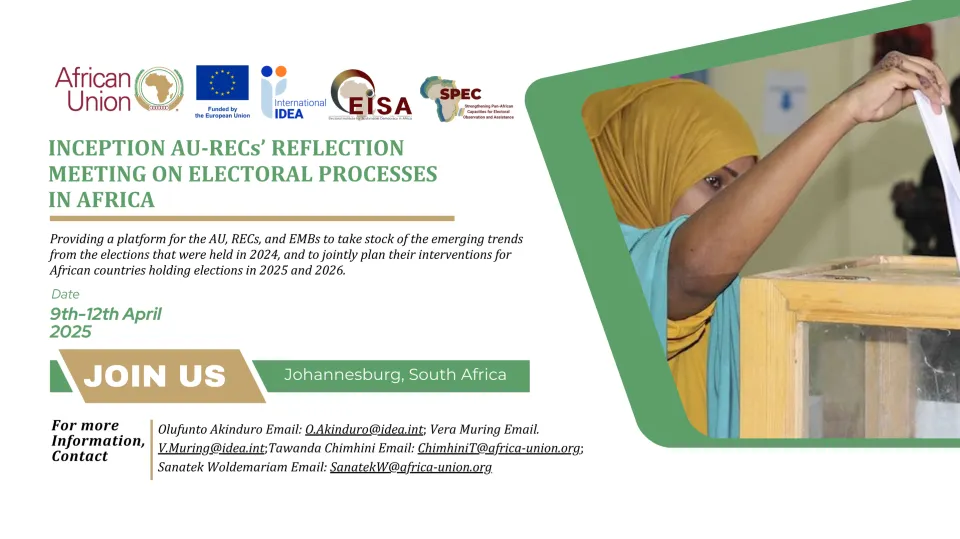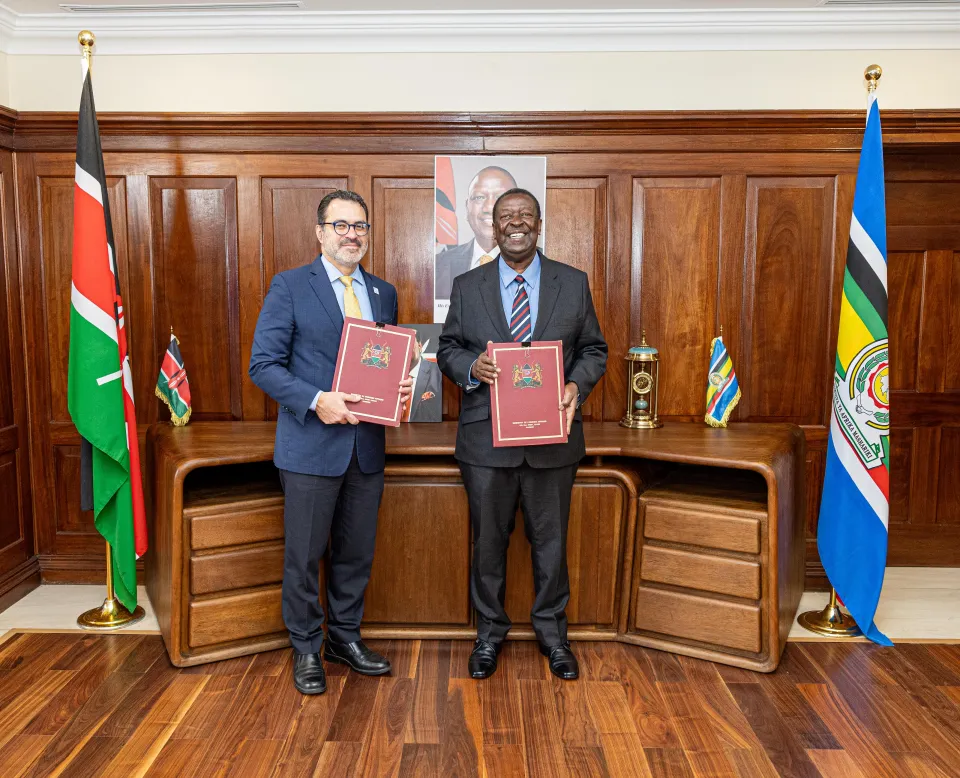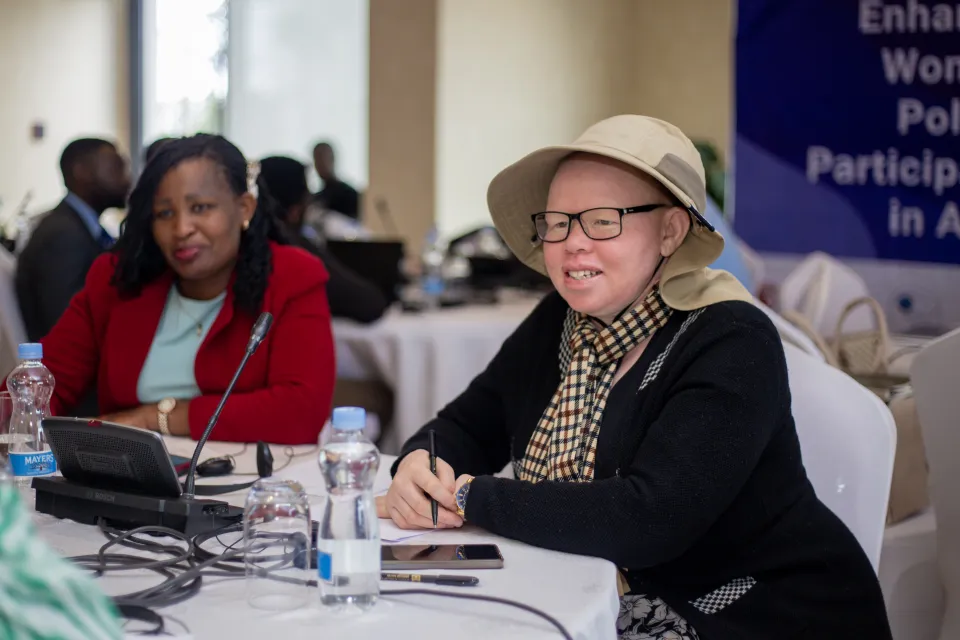Customary Governance and Democracy Building: Exploring the Linkages
In September 2011 in Addis Ababa, Ethiopia, the United Nations Economic Commission for Africa (UNECA) and International IDEA jointly organized a conference on how to best address the role of customary governance structures in a variety of current and potential future democracy-building contexts.
The conference brought together 70 experts from around the world, to develop a comparative analysis of the role and functioning of customary governance structures, promoting better informed and more effective democracy-building efforts.
In many contexts, ‘formal’ and ‘informal’ governance structures cannot easily be separated. Participants at the conference recognized the need to develop an approach to democracy building that seeks to match and combine these seemingly parallel systems of governance while formulating effective ways of dealing with instances where they diverge.
In addition, the importance of ‘customizing the democratic’—and at the same time ‘democratizing the customary’—is essential if democracy is to be considered truly legitimate by the world’s populations. A key conclusion of the discussions was recognizing and paying attention to contextual specificity, whether regional, national or local.
Details
Contents
Acknowledgements
Acronyms and abbreviations
Conference Introduction and Opening Remarks
Kojo Busia, Peter deSouza and Mark Salter
Session 1: African Perspectives
Why Democracy Building in Africa Might Require Reconciling Modern and Traditional Institutions of Governance
Kidane Mengisteab
The Roots of Resilience: Exploring Popular Support for African Traditional Authorities
Carolyn Logan
Session 2: Rooting Governance in African Realities
Rooting Governance in African Realities: Are Customary Institutions the Answer?
Frederick Golooba-Mutebi
Session 3: The Role of Traditional Governance Institutions in Promoting Democracy and Managing Internal Conflict: The Case of Botswana
Customary Governance and Democracy Building: The Case of Botswana
Patrick Molutsi
Session 4: The Role of Customary and Elected Authorities in Local Service Delivery: An Indian Case Study
The Role of Customary and Elected Authorities in Local Service Delivery: The Case of Karnataka State, India
Kripa Ananthpur
Session 5: Customary Governance and Democracy Building: Perspectives from the Andean Region
Latin America: New Political Actors, New Democracy and New States: The Role of Indigenous Peoples in the Refounding of the State
Guillermo Padilla Rubiano
Constitutional Recognition of Indigenous Customary Law in Latin America: From Multiculturalism to Plurinational States—Trends and Challenges
Raquel Yrigoyen Fajardo
Session 6: Customary Governance and Democracy Building: An Overview from the Arab World
Democracy Between Political Power and Customary Governance in the Arab Region
Gihan Abouzeid
Session 7: Lessons Learned for the International Community
Tanja Chopra
Concluding Session: Key Issues Identified and Critical Areas Requiring Further Investigation
Annex 1: Conference agenda
Annex 2: List of participants
Give us feedback
Do you have a question or feedback about this publication? Leave us your feedback, and we’ll get back to you
Send feedbackCustomary Governance and Democracy Building: Exploring the Linkages
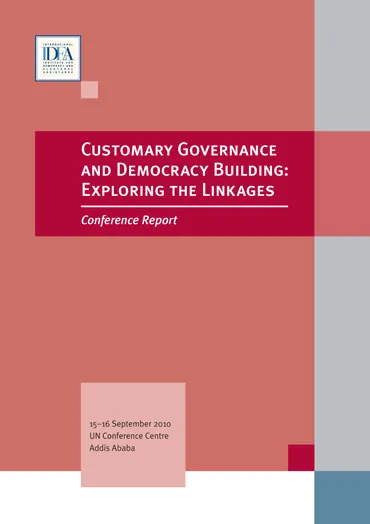
| Total views | 3729 |
|---|---|
| Downloads | 23 |
| Rating |
Give us feedback
Do you have a question or feedback about this publication? Leave us your feedback, and we’ll get back to you
Send feedback